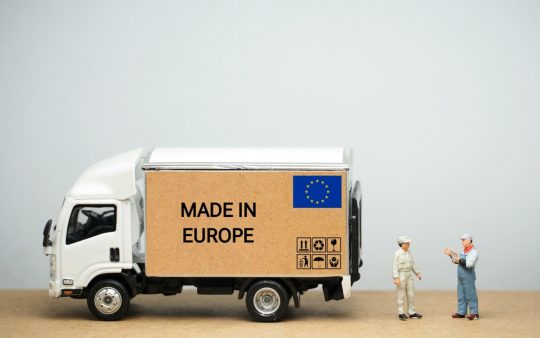PSI removes climate neutrality certificates from database

Published on 12.12.2024
The term ‘climate neutral’ has long been controversial and is strictly regulated by the new EU regulations. The use of the term ‘climate neutral’ in advertising is more strictly regulated in a ruling by the German Federal Court of Justice (BHG) on 27 June 2024 (AZI ZR 98/23). According to this ruling, companies may not advertise their products as climate-neutral if they cannot prove that they were manufactured in a climate-neutral way. The advertising itself must clearly state whether climate neutrality is achieved through actual CO2 reduction in the production process or merely through offsetting measures. At the end of 2022, the Frankfurt Higher Regional Court prohibited a company from advertising with ClimatePartner’s ‘climate-neutral company’ logo because not all relevant emissions were included in the assessment.
As a consequence, PSI removed the following certificates from the Product Finder database, the product entries and the Supplier Finder in week 48: Climate neutral product (ClimatePartner) and Climate neutral print product (ClimatePartner).
PSI recommends that suppliers check their product descriptions and, if necessary, remove the relevant references or adapt the texts. Companies may only use the term ‘climate neutral’ if they can demonstrate transparently and directly in their advertising how climate neutrality is achieved. Otherwise, there is a risk that the advertising will be categorised as misleading and legally prohibited.
Background:
New EU consumer regulations
On 27 March 2024, new EU consumer rules came into force that prohibit misleading greenwashing and false product claims. This means that companies can no longer claim that they are climate-neutral or environmentally friendly if they cannot prove it. According to EU consumer regulations, the use of sustainability seals that are not based on recognised certification systems or defined by authorities is prohibited.
This also includes seals that are intended to prove climate neutrality, such as those from project providers like ClimatePartner. There are currently more than 200 different eco-labels across Europe, each based on different methods. So far, the labels are not necessarily comparable and it is often not possible to verify how environmentally friendly products actually are.
Term not legally protected
The term ‘climate neutral’ on products is not legally protected. It only indicates that a company is making compensation payments for this product. The conditions for these offsetting payments are not standardised or prescribed. Either the entire life cycle of the product or only the manufacturing process in the company may have been taken into account. Furthermore, the term does not allow any statement to be made as to whether the company is endeavouring to reduce other environmental impacts (such as water pollution) or whether the product itself is environmentally friendly (e.g. energy-efficient in use). A lack of transparency is the keyword here, under which some of the points of criticism can be summarised.
Adjustments at ClimatePartner
ClimatePartner, which offers climate protection projects worldwide and also acts as a CO2 certificate trader, has now removed the term ‘climate neutral’ from its certificate. The consultancy firm’s new climate protection label is now called ‘ClimatePartner-certified’. The new word mark contains a lot of information, as it refers to an individual Climate ID website via a link or QR code, which can be used to track the climate protection commitment of a company or product. For example, you can see what reductions have already been implemented and what other goals the company is pursuing to achieve long-term climate protection. ClimatePartner is thus once again focussing on the reduction and avoidance of emissions as the main objective of holistic climate protection, with the compensation of unavoidable emissions by means of offsetting payments coming second. In this respect, the new certificate reflects the legally required verifiability of climate protection measures.
Current legal basis
The Empowering Consumers for the Green Transition Directive (ECGT) prohibits greenwashing and supplements the EU Unfair Commercial Practices Directive (UCPD). It is intended to ensure that the information communicated is accurate and presented in such a way that consumers understand it correctly. It prohibits generic environmental claims and other misleading environmental product information as well as non-certified sustainability labels.
The Green Claims Directive (GCD) specifies the ECGT. Environmental advertising claims, for example, must be scientifically substantiated and checked in advance by an independent body. The life cycle of a product must also be taken into account, i.e. from production to disposal. Companies with more than ten employees and an annual turnover of over two million euros that produce in the EU or want to sell products there are affected.













